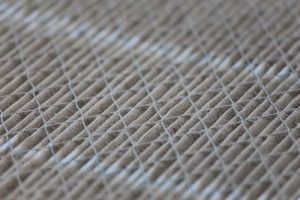
Pound for pound (or ounce for ounce), the air filter is one of the most important components in your HVAC system and home. Read on to learn the effects of a dirty filter, and why you should change the air filter regularly.
Problems Posed by Dirty Air Filters
While there are many reasons a good quality and clean air filter is needed for your home’s HVAC system, the simple purpose of all air filters is to capture airborne contaminants. Here’s why:
- System stress – The job of the HVAC system is to pull indoor air through the air ducts, cool or heat the airflow, and re-circulate the conditioned airflow through the supply ducts to the living spaces. A dirty or clogged air filter impedes airflow, which places excessive stress on the blower and other components. A clogged air filter can cause the blower motor to fail.
- System protection – Without an air filter in place, debris accumulates on HVAC system components, including inside the air ducts. Excessive debris accumulation hinders system performance.
- Comfort – When a dirty air filter restricts airflow across the blower, it’s restricting airflow back to the living spaces. This affects the quality of comfort in your home, which is the primary purpose of an HVAC system (providing comfortable indoor temperatures).
- Air quality – At the same time filters are protecting HVAC components, filters are also providing a layer of protection for household occupants from harmful contaminants, such as viruses, bacteria, mold, allergens and more (depending on the quality of the filter).
- Energy bills – Dirty filters affect the pocketbook. When the blower works harder to pull airflow through a dirty filter, it’s using substantially more electricity. So, not only do dirty filters pose a risk of damage to system components, which is a financial burden, your energy bills will be higher when the filter is not changed regularly.
Simply put, you should change the air filter regularly in your Chicagoland home to avoid problems, and to reap the rewards of a smooth-running HVAC system and healthful indoor air quality. For more information, contact Meyer’s today.

